
PRESENTER BIOS
All bios are listed in alphabetical order by last name
Megan Bang, CNAIR director; Professor, Learning Sciences, School of Education and Social Policy, Northwestern University
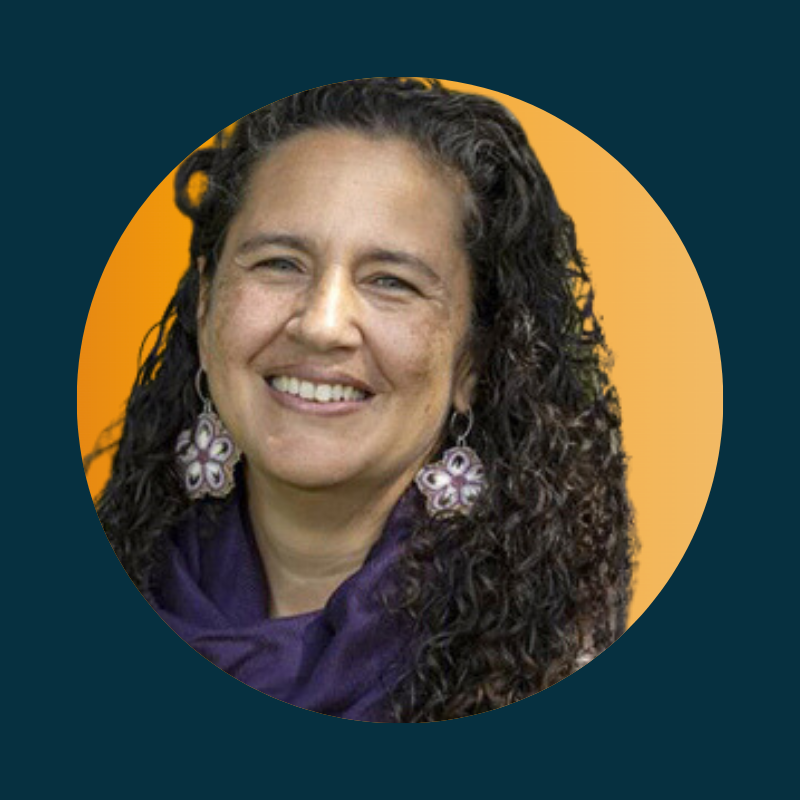 Dr. Bang, of Ojibwe and Italian descent, studies dynamics of culture, learning, and development broadly with a specific focus on the complexities of navigating multiple meaning systems in creating and implementing more effective and just learning environments in science, technology, engineering, arts, and mathematics education. She focuses on reasoning and decision-making about complex socio-ecological systems in ways that intersect with culture, power, and historicity. Central to this work are dimensions of identity, equity and community engagement. She works closely with Indigenous communities. She conducts research in both schools and informal settings across the life course. She has taught in and conducted research in teacher education as well as leadership preparation programs. Dr. Bang currently serves on the Board of Science Education at the National Academy of Sciences and is a member of the National Academy of Education.
Dr. Bang, of Ojibwe and Italian descent, studies dynamics of culture, learning, and development broadly with a specific focus on the complexities of navigating multiple meaning systems in creating and implementing more effective and just learning environments in science, technology, engineering, arts, and mathematics education. She focuses on reasoning and decision-making about complex socio-ecological systems in ways that intersect with culture, power, and historicity. Central to this work are dimensions of identity, equity and community engagement. She works closely with Indigenous communities. She conducts research in both schools and informal settings across the life course. She has taught in and conducted research in teacher education as well as leadership preparation programs. Dr. Bang currently serves on the Board of Science Education at the National Academy of Sciences and is a member of the National Academy of Education.
Dr Lorenda Belone, Diné, Professor, College of Population Health, UNM
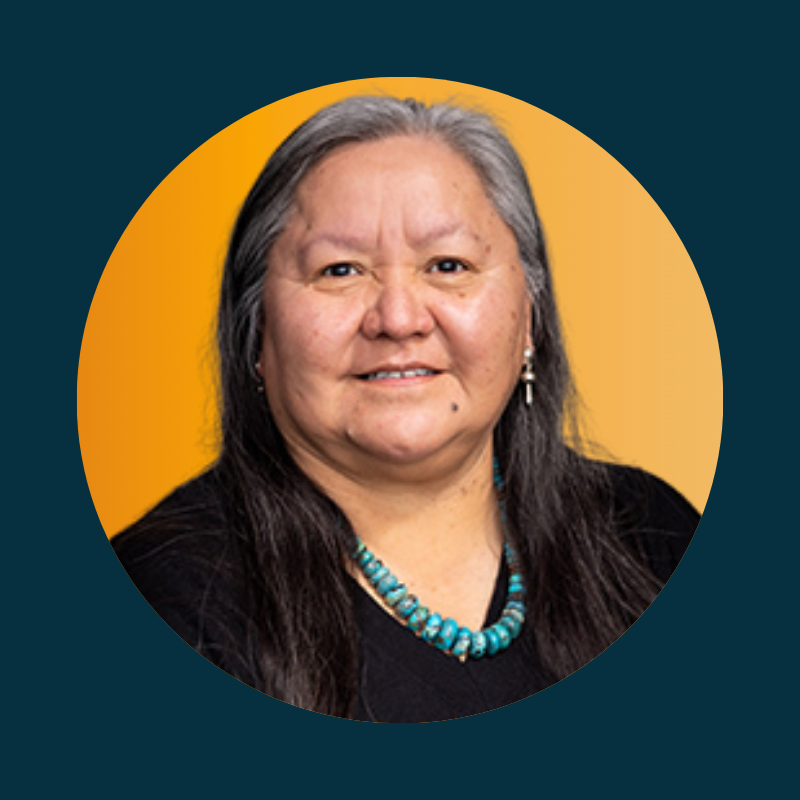 Dr. Belone (Diné) is from Naakaii Bito’ located on the Navajo Nation and at the beginning of last year Dr. Belone was promoted to full professor within the University of New Mexico Health Sciences Center’s College of Population Health located in Albuquerque, New Mexico. For the past 24 years, Dr. Belone has been engaged in community-based participatory research (CBPR) with an Indigenous paradigm focused on health disparities with southwest tribal nations. Her first National Institutes of Health (NIH) R01 study funded by the National Institute on Drug Abuse (2014-2021, Belone/Wallerstein) with three southwest Tribal Research Teams (Apache, Navajo & Pueblo) conducted a rigorous examination of an Indigenous family prevention program called the Family Listening Program (FLP). In 2020, Dr. Belone received a second R01 funded by the National Institute on Minority Health and Health Disparities (NIMHD, 2020-2025, Belone) an implementation study utilizing a CBPR approach in partnership with six tribal nations in the implementation of FLP an evidence-based Indigenous family prevention program. As an Indigenous CBPR researcher, it has been important to integrate my own cultural and tribal knowledge to overcome historical negative research experiences and tribal community members’ perceptions of research exploitation; and I have played a role in ensuring that research activities focused on prevention and implementation science align with tribal partners’ expectations and resources in current and past research.
Dr. Belone (Diné) is from Naakaii Bito’ located on the Navajo Nation and at the beginning of last year Dr. Belone was promoted to full professor within the University of New Mexico Health Sciences Center’s College of Population Health located in Albuquerque, New Mexico. For the past 24 years, Dr. Belone has been engaged in community-based participatory research (CBPR) with an Indigenous paradigm focused on health disparities with southwest tribal nations. Her first National Institutes of Health (NIH) R01 study funded by the National Institute on Drug Abuse (2014-2021, Belone/Wallerstein) with three southwest Tribal Research Teams (Apache, Navajo & Pueblo) conducted a rigorous examination of an Indigenous family prevention program called the Family Listening Program (FLP). In 2020, Dr. Belone received a second R01 funded by the National Institute on Minority Health and Health Disparities (NIMHD, 2020-2025, Belone) an implementation study utilizing a CBPR approach in partnership with six tribal nations in the implementation of FLP an evidence-based Indigenous family prevention program. As an Indigenous CBPR researcher, it has been important to integrate my own cultural and tribal knowledge to overcome historical negative research experiences and tribal community members’ perceptions of research exploitation; and I have played a role in ensuring that research activities focused on prevention and implementation science align with tribal partners’ expectations and resources in current and past research.
Forrest Bruce, PhD Student, Learning Sciences, School of Education and Social Policy
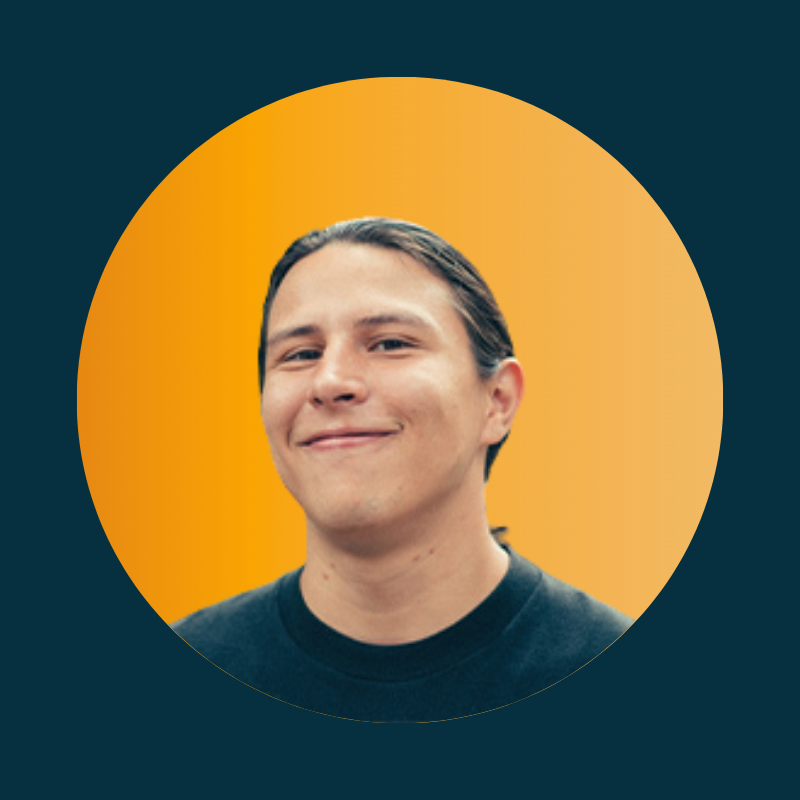 Forrest (Ojibwe) is a PhD student in the Learning Sciences at Northwestern University. He is broadly interested in land-based education and the design of community-based learning environments that support Indigenous ways of knowing and being. He received a BS in Social Policy from Northwestern University and worked in Chicago Public Schools’ American Indian Education Program (Title 6) for a year before joining the ISTEAM research project, first as a research coordinator then later as a graduate student.
Forrest (Ojibwe) is a PhD student in the Learning Sciences at Northwestern University. He is broadly interested in land-based education and the design of community-based learning environments that support Indigenous ways of knowing and being. He received a BS in Social Policy from Northwestern University and worked in Chicago Public Schools’ American Indian Education Program (Title 6) for a year before joining the ISTEAM research project, first as a research coordinator then later as a graduate student.
Sarina Tȟaté Otȟúŋwahé DiMaso, Behavioral Health Prevention Counselor, American Indian Health Service of Chicago
 Sarina (Tȟaté Otȟúŋwahé) DiMaso (Windy City) Is the Behavioral Health Prevention Counselor at the
Sarina (Tȟaté Otȟúŋwahé) DiMaso (Windy City) Is the Behavioral Health Prevention Counselor at the
American Indian Health Service of Chicago (AIHSC), since 2020. She is Citizen of the Chiricahua Apache/Taino Nations. Beginning her career as a Home Health Assistant, in 1990, Sarina obtained her Medical Assistant certificate and degree from Everest College in 2007. Along the way she has received numerous certifications in various mental and behavioral health, prevention and recovery, substance, alcohol, youth, elder fitness, cultural competency as well as ICWA foster case management. Sarina received a certification as a personal fitness trainer for adult and youth, mixed martial arts and functional exercise fitness with the Native American Fitness Council.
Eva Flying, President, Chief Dull Knife College, Northern Cheyenne
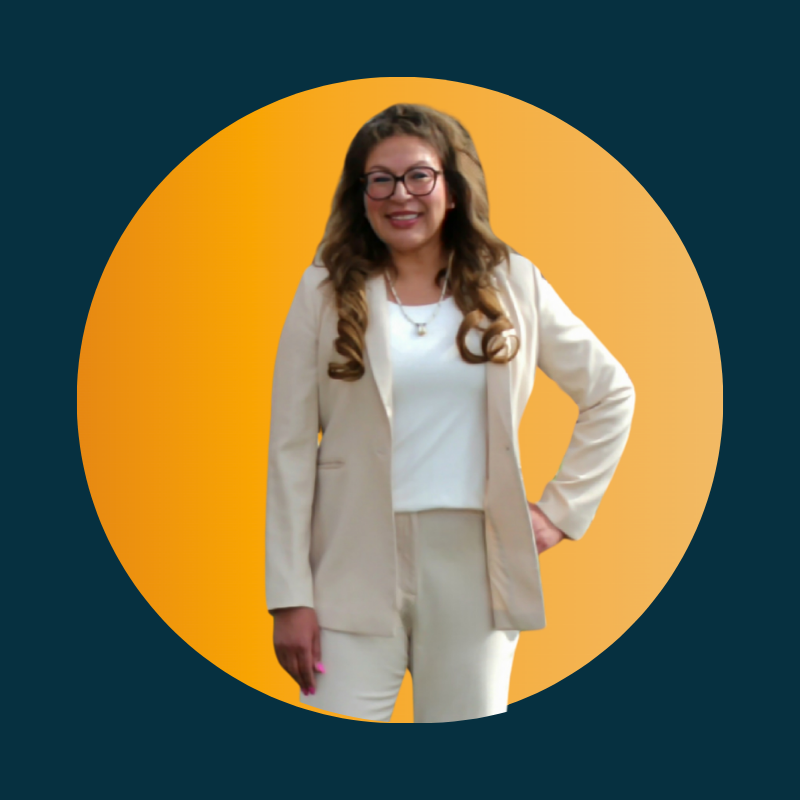 Eva M. Flying (Northern Cheyenne/Oneida), President of Chief Dull Knife College, is the 6th sitting President, and the first woman to occupy this role, which began in late August 2022. Flying is presently working on her Doctorate of Education in Community Colleges, with an emphasis in Community Colleges from California State University, Stanislaus. Flying has spent a considerable amount of her professional career establishing and managing health and wellness programs at higher education institutions.
Eva M. Flying (Northern Cheyenne/Oneida), President of Chief Dull Knife College, is the 6th sitting President, and the first woman to occupy this role, which began in late August 2022. Flying is presently working on her Doctorate of Education in Community Colleges, with an emphasis in Community Colleges from California State University, Stanislaus. Flying has spent a considerable amount of her professional career establishing and managing health and wellness programs at higher education institutions.
Elspeth Giger, NAGPRA Specialist, Northwestern University
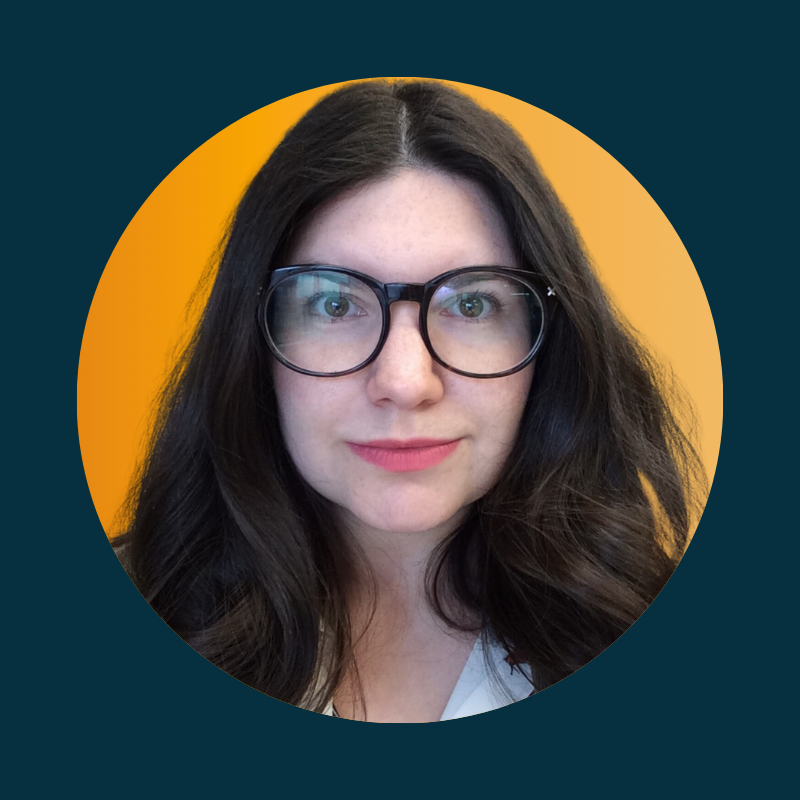 Dr. Elspeth Geiger, holds a joint position at the Field Museum and Northwestern University. Her official position is curator path research scientist in anthropology at the Field Museum, along with a joint appointment with the Department of Anthropology at Northwestern University.
Dr. Elspeth Geiger, holds a joint position at the Field Museum and Northwestern University. Her official position is curator path research scientist in anthropology at the Field Museum, along with a joint appointment with the Department of Anthropology at Northwestern University.
Elspeth's work focused on the Contact Period in the Great Lakes. Her research explores the seventeenth and eighteenth century indigenous sites across northern Michigan. In particular, she examines indigenous economies amidst French contact as they relate to Odawa labor organization and local plant subsistence. A particular focus of her work is archaeobotany. Elspeth received her MA in Anthropology from Wayne State University and participated in fieldwork in Mexico, Romania, Mongolia, and sites across the United States. In addition to her archaeological work, she recently completed her Certificate in Museum Studies where she focuses on Great Lakes ethnobotany in museum contexts.
Aaron Golding, Associate Director, Multicultural Student Affairs, Northwestern University
 Nya:weh sge:no. My name is Aaron Golding. I serve as the Associate Director for Multicultural Student Affairs. I am proud to serve our Native American and Indigenous community on campus. My work centers this community by creating opportunities for folks to come together and build relations. I also serve as the advisor for the Native American and Indigenous Student Alliance, which is a great way for students to get connected with the community of students, faculty, and staff on campus.
Nya:weh sge:no. My name is Aaron Golding. I serve as the Associate Director for Multicultural Student Affairs. I am proud to serve our Native American and Indigenous community on campus. My work centers this community by creating opportunities for folks to come together and build relations. I also serve as the advisor for the Native American and Indigenous Student Alliance, which is a great way for students to get connected with the community of students, faculty, and staff on campus.
Jasmine Gurneau, Director, Native American & Indigenous Affairs, Northwestern University
 Jasmine Gurneau (Oneida/Menominee) serves as the Director of Native American and Indigenous Affairs in the Office of Institutional Diversity and Inclusion at Northwestern University. Jasmine leads the development and implementation of university-wide initiatives related to the inclusion of Native American and Indigenous students, faculty, staff, and alumni. Her role includes facilitating stakeholder engagement, serving as a thought leader on campus, and building and sustaining partnerships with Native Nations, institutions, and communities. From Chicago, Illinois, Jasmine earned a Bachelor of Arts in Sociology from DePaul University and a Master of Arts in Learning Sciences from Northwestern University. She currently serves as the Board President for the Chicago American Indian Community Collaborative. She previously served two terms as a Community Representative of the Citywide American Indian Education Council for Chicago Public Schools and was a 2015 Fellow with Cultivate: Women of Color Leadership program.
Jasmine Gurneau (Oneida/Menominee) serves as the Director of Native American and Indigenous Affairs in the Office of Institutional Diversity and Inclusion at Northwestern University. Jasmine leads the development and implementation of university-wide initiatives related to the inclusion of Native American and Indigenous students, faculty, staff, and alumni. Her role includes facilitating stakeholder engagement, serving as a thought leader on campus, and building and sustaining partnerships with Native Nations, institutions, and communities. From Chicago, Illinois, Jasmine earned a Bachelor of Arts in Sociology from DePaul University and a Master of Arts in Learning Sciences from Northwestern University. She currently serves as the Board President for the Chicago American Indian Community Collaborative. She previously served two terms as a Community Representative of the Citywide American Indian Education Council for Chicago Public Schools and was a 2015 Fellow with Cultivate: Women of Color Leadership program.
Josh Honn, Digital Humanities Librarian, Northwestern University Library
 Josh Honn is an academic librarian, writer, and photographer living in Chicago. He works as Digital Humanities Librarian at Northwestern University where he collaborates with faculty and students on a range of digital and web-based research and pedagogy projects. He is interested in the critical study and practice of digital literacy, access, ethics, archives, and storytelling. His current research project, How Tall a Shadow You Can Make: Ross D. Brown, Historical Memory, and Archives of Care, seeks to form a hybrid and multimodal work illuminating a life made obscure while exploring black radical traditions, historical memory, archival violence, photography, digitization, and an ethics of archival care. Actively interested in digital NAIS, he’s collaborated with CNAIR faculty and local organizations on a number of digital projects. When he’s not at work or asleep, he’s probably coming up with puns and/or watching words, shadows, birds, and films.
Josh Honn is an academic librarian, writer, and photographer living in Chicago. He works as Digital Humanities Librarian at Northwestern University where he collaborates with faculty and students on a range of digital and web-based research and pedagogy projects. He is interested in the critical study and practice of digital literacy, access, ethics, archives, and storytelling. His current research project, How Tall a Shadow You Can Make: Ross D. Brown, Historical Memory, and Archives of Care, seeks to form a hybrid and multimodal work illuminating a life made obscure while exploring black radical traditions, historical memory, archival violence, photography, digitization, and an ethics of archival care. Actively interested in digital NAIS, he’s collaborated with CNAIR faculty and local organizations on a number of digital projects. When he’s not at work or asleep, he’s probably coming up with puns and/or watching words, shadows, birds, and films.
Doug Kiel, Associate Professor of History, Weinberg College of Arts and Sciences, Northwestern University
 Doug Kiel (Oneida Nation) is a Professor of History and the Humanities at Northwestern University. Kiel studies Indigenous histories and settler colonialism, primarily in the American Midwest, with an emphasis on law and policy. Kiel’s first book, Unsettling Territory: Oneida Nation Resurgence and Anti-Sovereignty Backlash, is forthcoming from Yale University Press. Their next book project, Power over the Land: Race, Colonialism, and the American Midwest, examines how settler-colonial geographies of power were created and maintained in the Midwest. Kiel’s work in museums has included serving as an advisor and co-curator for Native Truths: Our Voices, Our Stories, a permanent exhibition at the Field Museum that opened in 2022. He is co-curating an upcoming exhibition, Indigenous Chicago, which will open at the Newberry Library in the Fall. Additionally, Kiel serves on the scholarly advisory committee for the new Wisconsin History Center, opening in 2026. As an advocate, Kiel has testified before the U.S. House of Representatives, Committee on Natural Resources, and submitted an expert witness report in regards to Oneida Nation v. Village of Hobart (2020). Beyond the university, Kiel has worked in several museums, testified as an expert witness in regards to Indigenous land rights, and in 2008 was an Indigenous Fellow at the United Nations Office of the High Commissioner for Human Rights (OHCHR) in Geneva, Switzerland. He currently serves on the advisory committee for the renovation of the Field Museum’s exhibition on Native North America.
Doug Kiel (Oneida Nation) is a Professor of History and the Humanities at Northwestern University. Kiel studies Indigenous histories and settler colonialism, primarily in the American Midwest, with an emphasis on law and policy. Kiel’s first book, Unsettling Territory: Oneida Nation Resurgence and Anti-Sovereignty Backlash, is forthcoming from Yale University Press. Their next book project, Power over the Land: Race, Colonialism, and the American Midwest, examines how settler-colonial geographies of power were created and maintained in the Midwest. Kiel’s work in museums has included serving as an advisor and co-curator for Native Truths: Our Voices, Our Stories, a permanent exhibition at the Field Museum that opened in 2022. He is co-curating an upcoming exhibition, Indigenous Chicago, which will open at the Newberry Library in the Fall. Additionally, Kiel serves on the scholarly advisory committee for the new Wisconsin History Center, opening in 2026. As an advocate, Kiel has testified before the U.S. House of Representatives, Committee on Natural Resources, and submitted an expert witness report in regards to Oneida Nation v. Village of Hobart (2020). Beyond the university, Kiel has worked in several museums, testified as an expert witness in regards to Indigenous land rights, and in 2008 was an Indigenous Fellow at the United Nations Office of the High Commissioner for Human Rights (OHCHR) in Geneva, Switzerland. He currently serves on the advisory committee for the renovation of the Field Museum’s exhibition on Native North America.
Dr Lyle Ignace, CEO and Physician, GLI Indian Health Center, Milwaukee, WI
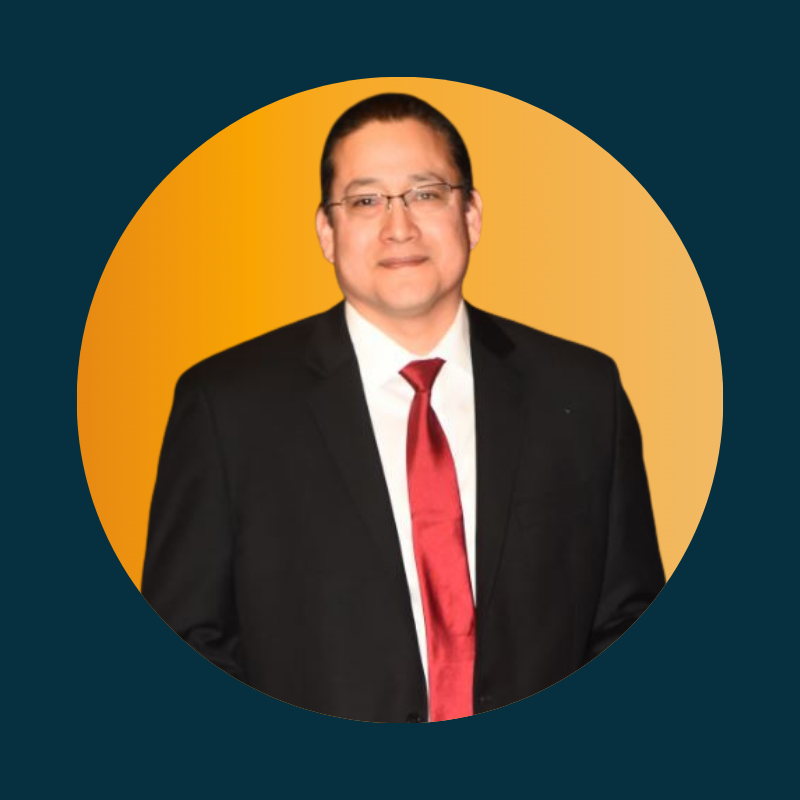 Dr. Ignace, Menominee and Coeur D’Alene, is a Board-Certified Internist and former Clinical Service Chief of Internal Medicine with 10 years of experience providing comprehensive ambulatory and inpatient acute care for the Gallup Indian Medical Center. Dr. Ignace received his Master of Public Health in Health Care Management and Policy from Harvard. He completed his Internal Medicine Residency Program at the Medical College of Wisconsin in Milwaukee, WI (1999), Medical Degree from the University of Minnesota, School of Medicine (1996) and has a Bachelor of Science Degree from Marquette University, Milwaukee, WI (1992).
Dr. Ignace, Menominee and Coeur D’Alene, is a Board-Certified Internist and former Clinical Service Chief of Internal Medicine with 10 years of experience providing comprehensive ambulatory and inpatient acute care for the Gallup Indian Medical Center. Dr. Ignace received his Master of Public Health in Health Care Management and Policy from Harvard. He completed his Internal Medicine Residency Program at the Medical College of Wisconsin in Milwaukee, WI (1999), Medical Degree from the University of Minnesota, School of Medicine (1996) and has a Bachelor of Science Degree from Marquette University, Milwaukee, WI (1992).
Cameron Macias, Wildlife Technician, Elwha Dam
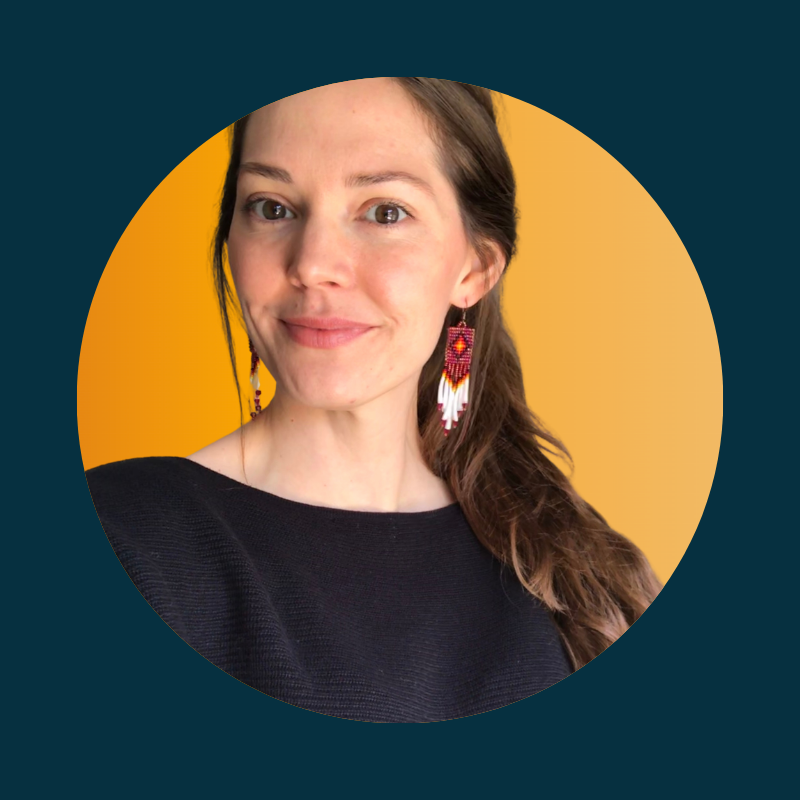 Macias grew up in Port Angeles in western Washington State. She completed her B.S. in Environmental Science at Western Washington University. Prior to attending the University of Idaho, Cameron spent 4 years working as a Wildlife Technician for the Lower Elwha Tribe, of which she’s a member. Cameron Macias, a member of the Lower Elwha Klallam Tribe (LEKT), grew up in a small town along the Elwha River in western Washington State. Her realization of the roles people play in ecosystem health, brought about in part by watching her Tribe fight for dam removal and restoration of salmon, inspired her to pursue a career working in natural resources. After earning a bachelor’s degree in Environmental Science from Western Washington University in 2017, Cameron began working full-time for her Tribe’s wildlife program, eager to invest herself in wildlife conservation. She was involved in several diverse projects as a wildlife technician, including a deer survival study and monitoring wildlife response to the removal of the Elwha dams. She started a master’s in Natural Resources at the University of Idaho in 2018 and was accepted into the university’s PhD program in 2020. For her PhD research, Cameron is studying cougar and bobcat prey selection and population dynamics in her Tribe’s traditional use areas, and one of her goals is to help the LEKT develop a method for long-term population monitoring. In her spare time, she enjoys reading, gardening, skiing, and cheering for the Vancouver Canucks hockey team.
Macias grew up in Port Angeles in western Washington State. She completed her B.S. in Environmental Science at Western Washington University. Prior to attending the University of Idaho, Cameron spent 4 years working as a Wildlife Technician for the Lower Elwha Tribe, of which she’s a member. Cameron Macias, a member of the Lower Elwha Klallam Tribe (LEKT), grew up in a small town along the Elwha River in western Washington State. Her realization of the roles people play in ecosystem health, brought about in part by watching her Tribe fight for dam removal and restoration of salmon, inspired her to pursue a career working in natural resources. After earning a bachelor’s degree in Environmental Science from Western Washington University in 2017, Cameron began working full-time for her Tribe’s wildlife program, eager to invest herself in wildlife conservation. She was involved in several diverse projects as a wildlife technician, including a deer survival study and monitoring wildlife response to the removal of the Elwha dams. She started a master’s in Natural Resources at the University of Idaho in 2018 and was accepted into the university’s PhD program in 2020. For her PhD research, Cameron is studying cougar and bobcat prey selection and population dynamics in her Tribe’s traditional use areas, and one of her goals is to help the LEKT develop a method for long-term population monitoring. In her spare time, she enjoys reading, gardening, skiing, and cheering for the Vancouver Canucks hockey team.
Laura Manthe, Co-Founder Ohe-Láku Among the Cornstalks
 Laura Manthe (Oneida Nation) currently works for the nonprofit Slipstream as the Indigenous Community Partnership Senior Manager. Prior to that she served as the Director of the Oneida Environmental Resources Board from 1996 ro 2020. She led several large projects focused on cultural and natural resource conservation. From installing solar panels to building paths between housing sites and schools, Laura has brought her dream of sustainable design and energy efficiency to life on the reservation. Laura’s success is attributed to her ability to engage the community throughout a project’s design and lead interdepartmental and intergovernmental teams toward a shared vision. When she’s off the clock, Laura personifies the spirit of community service, and can often be found volunteering at community events and fundraisers. Her greatest volunteer effort yet has been coordinating Ohe.laku – Among the Corn Stalks, a nonprofit Indigenous agriculture cooperative of 20 Oneida families that grows traditional white corn since 2016. Laura’s tireless efforts have raised over $500,000 for the project in just eight years and grown and hand harvested a total of 40,000 lbs of corn. For fun, she and her husband Robin make and sell Haudenosaunee beadwork and jewelry. She truly embodies her Oneida name, She Goes Over the Clouds, because nothing seems to slow her down.
Laura Manthe (Oneida Nation) currently works for the nonprofit Slipstream as the Indigenous Community Partnership Senior Manager. Prior to that she served as the Director of the Oneida Environmental Resources Board from 1996 ro 2020. She led several large projects focused on cultural and natural resource conservation. From installing solar panels to building paths between housing sites and schools, Laura has brought her dream of sustainable design and energy efficiency to life on the reservation. Laura’s success is attributed to her ability to engage the community throughout a project’s design and lead interdepartmental and intergovernmental teams toward a shared vision. When she’s off the clock, Laura personifies the spirit of community service, and can often be found volunteering at community events and fundraisers. Her greatest volunteer effort yet has been coordinating Ohe.laku – Among the Corn Stalks, a nonprofit Indigenous agriculture cooperative of 20 Oneida families that grows traditional white corn since 2016. Laura’s tireless efforts have raised over $500,000 for the project in just eight years and grown and hand harvested a total of 40,000 lbs of corn. For fun, she and her husband Robin make and sell Haudenosaunee beadwork and jewelry. She truly embodies her Oneida name, She Goes Over the Clouds, because nothing seems to slow her down.
Zach Pahmahmie, Prarie Band Potawatomi Nation, Vice Person
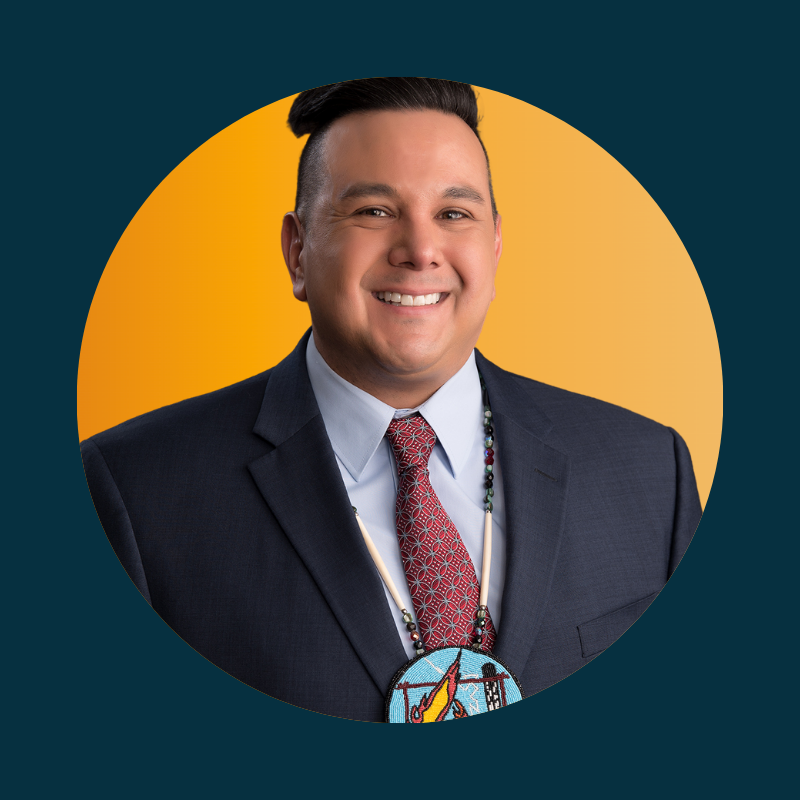
Zach Pahmahmie currently serves as the Tribal Council Vice-Chair, part of the elected seven-member-governing body of the Prairie Band Potawatomi Nation. Previously, he served as Tribal Chairman at the age of 28, the youngest in the Tribe’s modern history.
In addition to his Council role, Zach also serves as Chairperson for the Board of Directors of Prairie Band, LLC, an economic development arm of the Prairie Band Potawatomi. In October 2019, he concluded a second term as Southern Plains Regional Vice-President for the National Congress of American Indians. Additionally, since 2012 he has served as a member and previously served as co-chair for the Kansas Tribal Health Summit Planning Committee, a collaborative effort among the four tribes in Kansas working towards improving the health and well-being of the tribal population in the state. He received his B.A. from Stanford University and a Juris Doctor from the University of Kansas School of Law with an emphasis in tribal law and governance.
Miguel Angel Ovies-Bocanegra , PhD Student, Learning Sciences, School of Education and Social Policy
 Miguel is currently pursuing a doctorate in Learning Science at Northwestern University’s School of Education and Social Policy. His research interest investigates the development and maturation of culture, cognition, ethics and political sense-making that emerge in moment-to-moment interactions. Specifically, he aims to design, sustain and promote epistemological alterity using a sociohistorical approach that advances and strengthens learning partnerships in and out of school settings. Miguel holds an M.Ed in Educational Psychology from the University of Minnesota and MPA from Southern Utah University.
Miguel is currently pursuing a doctorate in Learning Science at Northwestern University’s School of Education and Social Policy. His research interest investigates the development and maturation of culture, cognition, ethics and political sense-making that emerge in moment-to-moment interactions. Specifically, he aims to design, sustain and promote epistemological alterity using a sociohistorical approach that advances and strengthens learning partnerships in and out of school settings. Miguel holds an M.Ed in Educational Psychology from the University of Minnesota and MPA from Southern Utah University.
Michael Waaseghiizhig Price, Anishinaabe, Traditional Ecological Knowledge Specialist, Great lakes Indian Fish and Wildlife Commission (GLIFWC)
 Michael Waasegiizhig Price is the traditional ecological knowledge (TEK) specialist at the Great Lakes Indian Fish and Wildlife Commission in Odanah, Wisconsin. He is Anishinaabe and an enrolled member of Wikwemikong First Nations in Canada. His role as TEK specialist involves integrating Anishinaabe language and cultural perspectives into research methods and resource management to make science more culturally relevant. Michael received his master of science in forestry from the University of Montana and a bachelor of arts in biology from Benedictine College in Atchison, Kansas. He also received his Certificate of Ojibwe Language Instruction from Bemidji State University.
Michael Waasegiizhig Price is the traditional ecological knowledge (TEK) specialist at the Great Lakes Indian Fish and Wildlife Commission in Odanah, Wisconsin. He is Anishinaabe and an enrolled member of Wikwemikong First Nations in Canada. His role as TEK specialist involves integrating Anishinaabe language and cultural perspectives into research methods and resource management to make science more culturally relevant. Michael received his master of science in forestry from the University of Montana and a bachelor of arts in biology from Benedictine College in Atchison, Kansas. He also received his Certificate of Ojibwe Language Instruction from Bemidji State University.
William Quackenbush, Tribal Historic Preservation Officer and Cultural Resources Division Manager, Ho-Chunk Nation
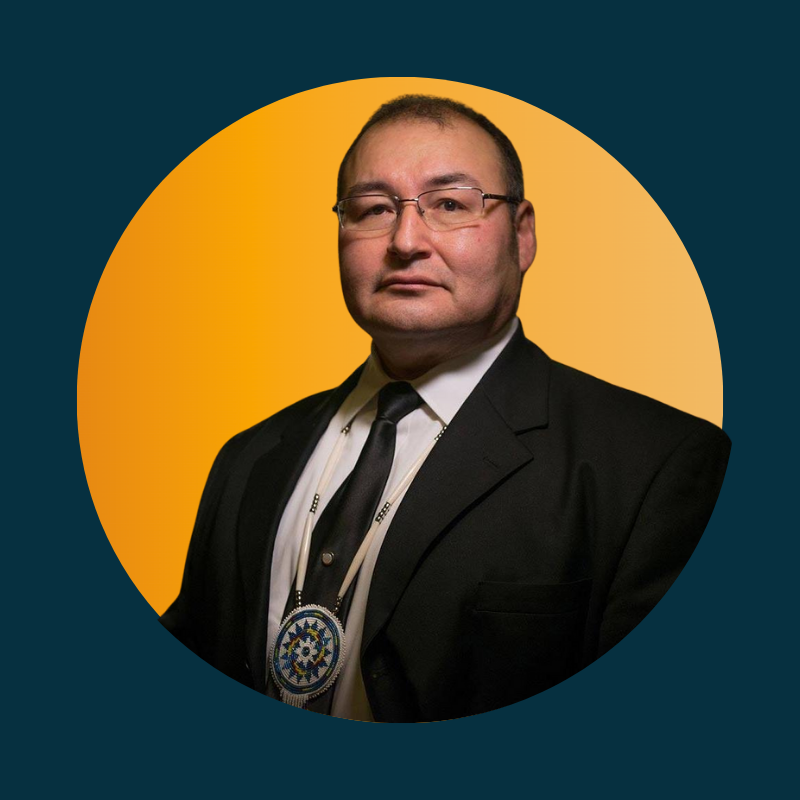 William “Nąąwącekǧize” Quackenbush, Ho-Chunk Deer Clan Tribal Member, serves as the Tribal Historic Preservation Officer (THPO) and Cultural Resources Division Manager for the Ho-Chunk Nation. As the Ho-Chunk Nation Tribal Historian, Mr. Quackenbush has presented extensively on Ho-Chunk history and culture.
William “Nąąwącekǧize” Quackenbush, Ho-Chunk Deer Clan Tribal Member, serves as the Tribal Historic Preservation Officer (THPO) and Cultural Resources Division Manager for the Ho-Chunk Nation. As the Ho-Chunk Nation Tribal Historian, Mr. Quackenbush has presented extensively on Ho-Chunk history and culture.
Beth Redbird, Associate Professor, Sociology, Northwestern University
 Redbird is a Citizen of the Choctaw Nation of Oklahoma and a faculty fellow with the Institute for Policy Research and the Center for Native American and Indigenous Research. Her work focuses on how between-group boundaries impact interaction, conflict and inequality. Boundaries can be as formal as borders between nations, or as informal as cultural differences. Whether they are geographical, political, legal, or social, boundaries create inequality because they limit the free flow of resources; restrict knowledge and ideas; and draw distinctions between 'us' and 'them'. Her current work focuses on two areas: (1) The ways in which modern settler-colonial boundaries constrain and influence native nations; (2) The flow of human movement within and between spaces. Redbird has published in the areas of methodology, law and society, race, and expertise; including two articles in Nature and Human Behavior, the American Sociological Review, and the Annual Review of Sociology. She is currently the Co-Director of the Tribal Constitutions Project (TCP), which combines qualitative legal analysis, quantitative causal inference analysis, and natural language processing to examine the largest corpus of tribal constitutional documents ever assembled. Her research has been funded by the National Science Foundation, the Mellon Foundation, the U.S. Department of Labor, and the Russell Sage Foundation, among others. She has helped to raise more than $6 million in funding for research on inequality, well-being, and the law.
Redbird is a Citizen of the Choctaw Nation of Oklahoma and a faculty fellow with the Institute for Policy Research and the Center for Native American and Indigenous Research. Her work focuses on how between-group boundaries impact interaction, conflict and inequality. Boundaries can be as formal as borders between nations, or as informal as cultural differences. Whether they are geographical, political, legal, or social, boundaries create inequality because they limit the free flow of resources; restrict knowledge and ideas; and draw distinctions between 'us' and 'them'. Her current work focuses on two areas: (1) The ways in which modern settler-colonial boundaries constrain and influence native nations; (2) The flow of human movement within and between spaces. Redbird has published in the areas of methodology, law and society, race, and expertise; including two articles in Nature and Human Behavior, the American Sociological Review, and the Annual Review of Sociology. She is currently the Co-Director of the Tribal Constitutions Project (TCP), which combines qualitative legal analysis, quantitative causal inference analysis, and natural language processing to examine the largest corpus of tribal constitutional documents ever assembled. Her research has been funded by the National Science Foundation, the Mellon Foundation, the U.S. Department of Labor, and the Russell Sage Foundation, among others. She has helped to raise more than $6 million in funding for research on inequality, well-being, and the law.
Beatriz Reyes, Assistant Professor of Instruction, Global Health Studies, Weinberg College of Arts and Sciences, Northwestern University
 Beatriz Reyes (Diné citizen + Mexican American) is a trained public health practitioner. Her research interests work at the intersection of chronic disease prevention, program evaluation, and qualitative research. In her teaching, she aims to challenge students to understand the gradients and intersections of structural oppression, theories of liberation, and asks students to consider the complexity of seeking solutions in settler colonial society. She earned a Bachelor of Science in Zoology from the University of Oklahoma, her Master of Public Health in Health Behavior from East Carolina University, and Doctor of Public Health in Health Policy and Social Justice from Drexel University Dornsife School of Public Health.
Beatriz Reyes (Diné citizen + Mexican American) is a trained public health practitioner. Her research interests work at the intersection of chronic disease prevention, program evaluation, and qualitative research. In her teaching, she aims to challenge students to understand the gradients and intersections of structural oppression, theories of liberation, and asks students to consider the complexity of seeking solutions in settler colonial society. She earned a Bachelor of Science in Zoology from the University of Oklahoma, her Master of Public Health in Health Behavior from East Carolina University, and Doctor of Public Health in Health Policy and Social Justice from Drexel University Dornsife School of Public Health.
Kimberly Marion Suiseeya, Associate Professor, Environmental Social Science, Weinberg College of Arts and Sciences, Northwestern University
 Kimberly Marion Suiseeya is an environmental social scientist with expertise in environmental justice, global environmental politics, Indigenous politics, and community-driven research. Her research examines how Indigenous communities shape and are impacted by multilateral environmental agreements like the UN Framework Convention on Climate Change. She is a Commission Member of the IUCN’s Commission on Environmental, Economic, and Social Policy, a Research Fellow with the Earth System Governance project, and a member of the Earth System Governance project’s Planetary Justice Task force. Dr. Marion Suiseeya is also an experienced policy practitioner who has worked and conducted research in Guyana, Laos, Thailand, Myanmar, and the US. Her research is supported by the National Science Foundation and the Alfred P. Sloan Foundation.
Kimberly Marion Suiseeya is an environmental social scientist with expertise in environmental justice, global environmental politics, Indigenous politics, and community-driven research. Her research examines how Indigenous communities shape and are impacted by multilateral environmental agreements like the UN Framework Convention on Climate Change. She is a Commission Member of the IUCN’s Commission on Environmental, Economic, and Social Policy, a Research Fellow with the Earth System Governance project, and a member of the Earth System Governance project’s Planetary Justice Task force. Dr. Marion Suiseeya is also an experienced policy practitioner who has worked and conducted research in Guyana, Laos, Thailand, Myanmar, and the US. Her research is supported by the National Science Foundation and the Alfred P. Sloan Foundation.
Duncan McCue, Anishinaabe, Professor of Indigenous Journalism and (Story)telling at Carleton University’s School of Journalism
 Award-winning broadcaster and educator Duncan McCue is a Professor of Indigenous Journalism and (Story)telling at Carleton University’s School of Journalism. A longtime CBC radio host and TV news correspondent, he’s the author of Decolonizing Journalism: A Guide to Reporting in Indigenous Communities and The Shoe Boy, a memoir of his time spent on a trapline with a Cree family in northern Quebec. Duncan is a proud Anishinaabe, from the Chippewas of Georgina Island First Nation in southern Ontario.
Award-winning broadcaster and educator Duncan McCue is a Professor of Indigenous Journalism and (Story)telling at Carleton University’s School of Journalism. A longtime CBC radio host and TV news correspondent, he’s the author of Decolonizing Journalism: A Guide to Reporting in Indigenous Communities and The Shoe Boy, a memoir of his time spent on a trapline with a Cree family in northern Quebec. Duncan is a proud Anishinaabe, from the Chippewas of Georgina Island First Nation in southern Ontario.
Kim Vigue, Executive Director, Mitchell Museum of the American Indian
 Kim Vigue is the executive director of the Mitchell Museum of the American Indian. Kim brings over 20 years of experience working on behalf of many leading tribal organizations, federal agencies, nonprofit organizations, and private sector entities to develop and deliver culturally relevant initiatives and programming designed to improve the well-being of Native children, families, and communities. Kim is also the founder of Wolf River Consulting Group and previously served as the Communications Director at the U.S. Department of the Interior’s Bureau of Indian Education. Kim is an enrolled member of the Oneida Nation and a descendant of the Menominee Tribe of Wisconsin. She joined the Mitchell Museum in October 2021.
Kim Vigue is the executive director of the Mitchell Museum of the American Indian. Kim brings over 20 years of experience working on behalf of many leading tribal organizations, federal agencies, nonprofit organizations, and private sector entities to develop and deliver culturally relevant initiatives and programming designed to improve the well-being of Native children, families, and communities. Kim is also the founder of Wolf River Consulting Group and previously served as the Communications Director at the U.S. Department of the Interior’s Bureau of Indian Education. Kim is an enrolled member of the Oneida Nation and a descendant of the Menominee Tribe of Wisconsin. She joined the Mitchell Museum in October 2021.
Raphael Wahwassuck, Member, Tribal Council, Prairie Band Potawatomi Nation
 Raphael Wahwassuck grew up living between Topeka and the Potawatomi reservation for most of his life. He has a degree in Organizational Management and Leadership. In his professional life, Wahwasuck worked in the tribal judicial system for a number of years; he also worked on federal grants for different tribes throughout the country. Currently he serves on the Tribal Council for the Prairie Band Potawatomi Nation. He enjoys the opportunity to share his traditions and educate people about his culture.
Raphael Wahwassuck grew up living between Topeka and the Potawatomi reservation for most of his life. He has a degree in Organizational Management and Leadership. In his professional life, Wahwasuck worked in the tribal judicial system for a number of years; he also worked on federal grants for different tribes throughout the country. Currently he serves on the Tribal Council for the Prairie Band Potawatomi Nation. He enjoys the opportunity to share his traditions and educate people about his culture.
Carrie Whitlow, Director of Education Department, Cheyenne-Arapaho
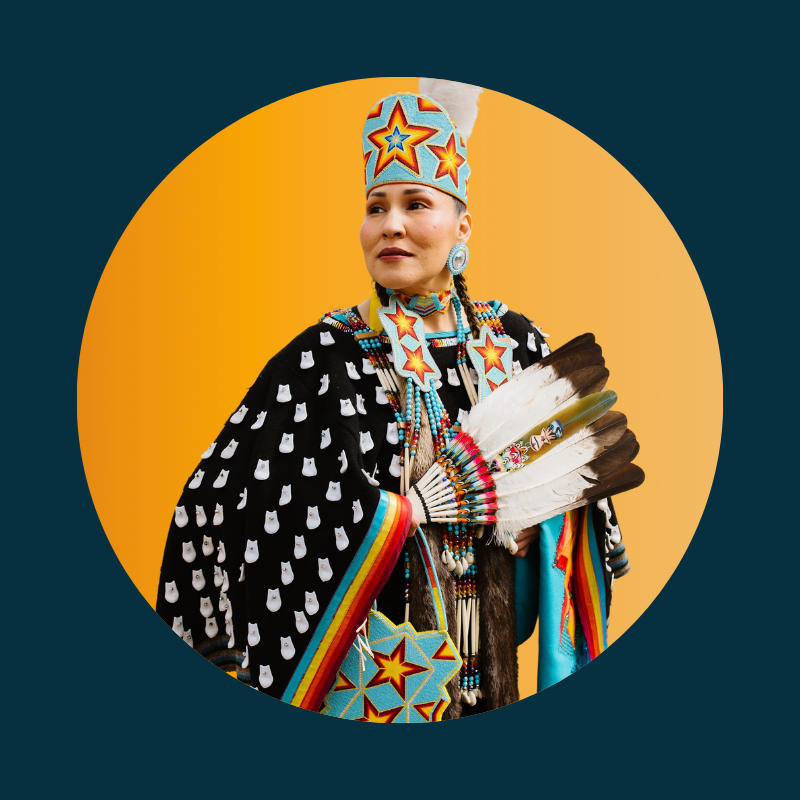 Carrie F. Whitlow is an enrolled citizen of the Cheyenne and Arapaho Tribes and is descendant from the Kiowa and Muscogee Creek Tribes. Her Arapaho name is Nanak’ate Hisea, which means Light or Yellowhair Woman and was given to her by her grandmother. She is the daughter of Dara Franklin and the late Billy Whitlow. Her maternal grandparents are the late Arapaho Chief Virgil Franklin, Sr. and Violet Bernice Franklin and her paternal grandparents are the late William Joseph Whitlow and Geraldine Tallbull Morton. She currently serves as the Executive Director for the Cheyenne and Arapaho Department of Education. Ms. Whitlow has worked for the Cheyenne and Arapaho Tribes for the past 17 years in various management/leadership capacities. She is also a 4th year doctoral student at Kansas State University pursuing a PhD in Adult Learning and Leadership and a graduate certificate in Qualitative Research. Ms. Whitlow’s research interests include Indigenous female leadership, Indigenous feminism, and Tribal Education Departments (TEDs)/Tribal Education Agencies (TEAs). She currently serves on the School Board for Riverside Indian School, is the Treasurer on the Executive Committee for Tribal Education Departments National Assembly (TEDNA) and is the Graduate Student Representative for the American Education Research Association (AERA) Indigenous Peoples of America (IPA) Special Interest Group (SIG). She recently completed a one-year term as a Student Board Member for the National Indian Education Association (NIEA).
Carrie F. Whitlow is an enrolled citizen of the Cheyenne and Arapaho Tribes and is descendant from the Kiowa and Muscogee Creek Tribes. Her Arapaho name is Nanak’ate Hisea, which means Light or Yellowhair Woman and was given to her by her grandmother. She is the daughter of Dara Franklin and the late Billy Whitlow. Her maternal grandparents are the late Arapaho Chief Virgil Franklin, Sr. and Violet Bernice Franklin and her paternal grandparents are the late William Joseph Whitlow and Geraldine Tallbull Morton. She currently serves as the Executive Director for the Cheyenne and Arapaho Department of Education. Ms. Whitlow has worked for the Cheyenne and Arapaho Tribes for the past 17 years in various management/leadership capacities. She is also a 4th year doctoral student at Kansas State University pursuing a PhD in Adult Learning and Leadership and a graduate certificate in Qualitative Research. Ms. Whitlow’s research interests include Indigenous female leadership, Indigenous feminism, and Tribal Education Departments (TEDs)/Tribal Education Agencies (TEAs). She currently serves on the School Board for Riverside Indian School, is the Treasurer on the Executive Committee for Tribal Education Departments National Assembly (TEDNA) and is the Graduate Student Representative for the American Education Research Association (AERA) Indigenous Peoples of America (IPA) Special Interest Group (SIG). She recently completed a one-year term as a Student Board Member for the National Indian Education Association (NIEA).
Symposium Registration
